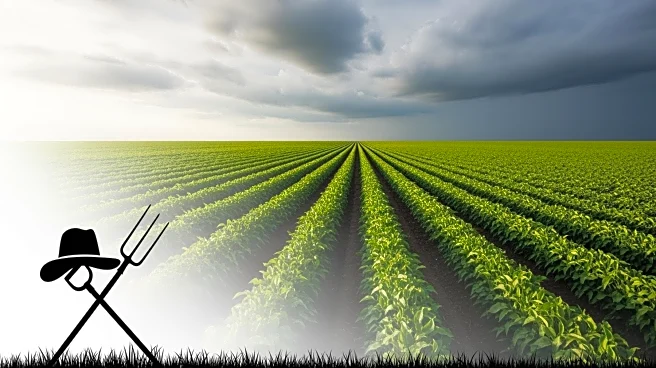What's Happening?
President Trump is considering a bailout for U.S. farmers affected by the ongoing trade war with China. The trade conflict has led to China boycotting American soybeans, significantly impacting U.S. farmers who
rely on this market. The potential bailout could involve tapping into tariff revenue or using funds from the USDA. This development follows a previous bailout in March and comes as farmers face challenges such as labor shortages, rising costs, and lower prices.
Why It's Important?
The trade war with China has severely affected U.S. farmers, particularly those in the soybean industry. A bailout could provide much-needed financial relief, helping farmers cope with lost markets and economic pressures. However, it also raises questions about the sustainability of relying on government aid versus establishing stable trade relationships. The situation underscores the broader economic impact of international trade policies and their influence on domestic agriculture.
What's Next?
President Trump is expected to meet with Chinese President Xi Jinping later this month, which could influence the direction of trade negotiations. The outcome of these talks may affect the need for a farmer bailout and the future of U.S.-China trade relations. Stakeholders in the agricultural sector will be watching closely for any developments that could restore market access or lead to further government intervention.
Beyond the Headlines
The potential bailout highlights the complexities of international trade and its impact on domestic industries. It raises ethical considerations about government intervention in markets and the long-term effects on agricultural sustainability. The situation may prompt discussions on alternative strategies for supporting farmers and diversifying export markets.









